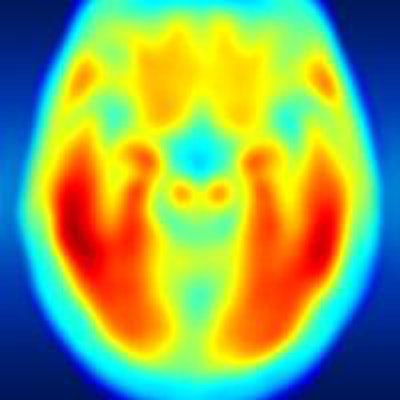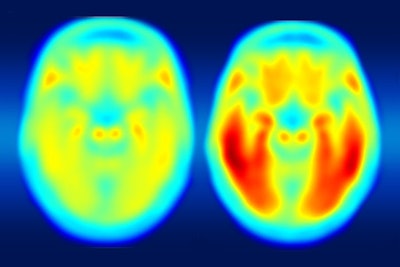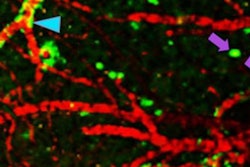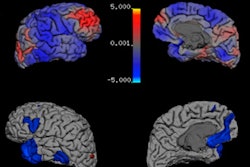
With the help of a new PET imaging agent, researchers at Washington University in St. Louis have shown how tau protein deposits in the brain are better indicators of a person's likely progression to Alzheimer's disease than beta amyloid, according to a study published May 11 in Science Translational Medicine.
Called T807, the PET radiopharmaceutical is cleared for clinical trials and is offering early evidence that could prove beneficial in imaging for cognitive impairment by binding to tau protein.
Elevated tau measured in cerebrospinal fluid has long been a marker of dementia and has been used as a way to stage preclinical Alzheimer's disease. However, this measure does not show where in the brain the abnormal tau proteins are gathering, said senior author Dr. Beau Ances, PhD, an associate professor of neurology.
In addition, while elevated levels of beta amyloid are known to be the earliest indication of the potential onset of Alzheimer's disease, many of these people remain cognitively normal.
In the current study, Ances and colleagues analyzed 36 cognitively normal control subjects and 10 patients with mild Alzheimer's disease (Sci Transl Med, May 11, 2016, Vol. 8:338).
To determine the degree of cognitive impairment, some participants who received PET scans with T807 were also assessed with the traditional clinical dementia rating (CDR) scale, cerebrospinal fluid measures, and written tests of memory and other brain functions.
Measures of tau in the cerebrospinal fluid correlated with tau deposition in the temporal lobe as seen with PET, the researchers found. In addition, the presence of tau protein in the temporal lobe more closely matched dementia status and better predicted cognitive performance than beta-amyloid deposits in any region of the brain.
 Red areas of PET images with T807 indicate greater accumulation of tau protein. The image on the left shows average tau accumulation in the brains of cognitively normal people, averaged over many individuals. The image on the right shows the average amount of tau buildup in the brains of multiple people with mild Alzheimer's symptoms. Images courtesy of Dr. Matthew Brier.
Red areas of PET images with T807 indicate greater accumulation of tau protein. The image on the left shows average tau accumulation in the brains of cognitively normal people, averaged over many individuals. The image on the right shows the average amount of tau buildup in the brains of multiple people with mild Alzheimer's symptoms. Images courtesy of Dr. Matthew Brier.The results suggest that a person can tolerate a certain amount of tau in the hippocampus, but when it begins to spread to other areas, especially the lateral temporal and parietal lobes, that advance can be the catalyst for progression to Alzheimer's disease, according to Ances.
He recommended larger follow-up studies and also noted that T807 could be useful for other conditions that involve tau accumulation, such as traumatic brain injury.




















